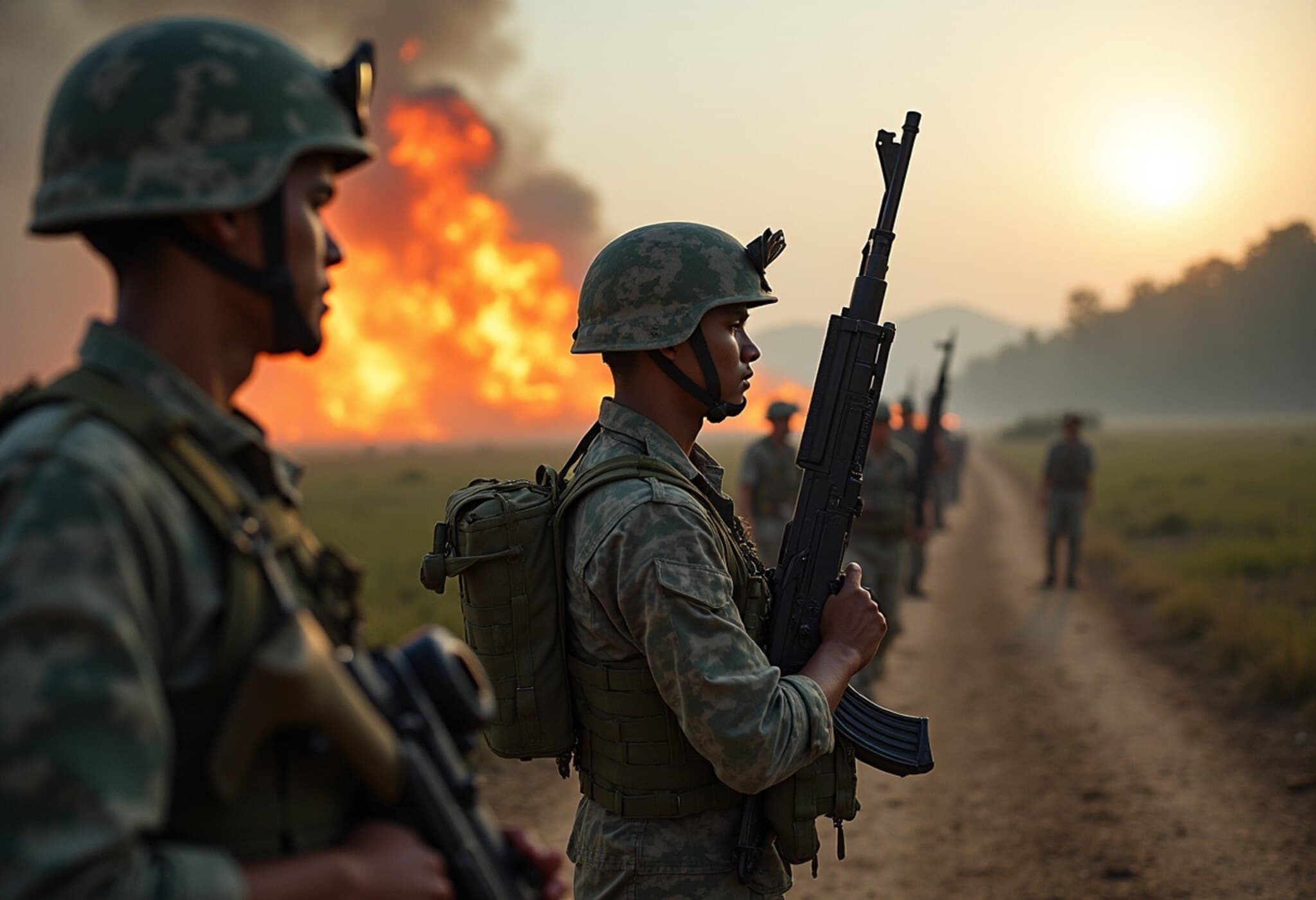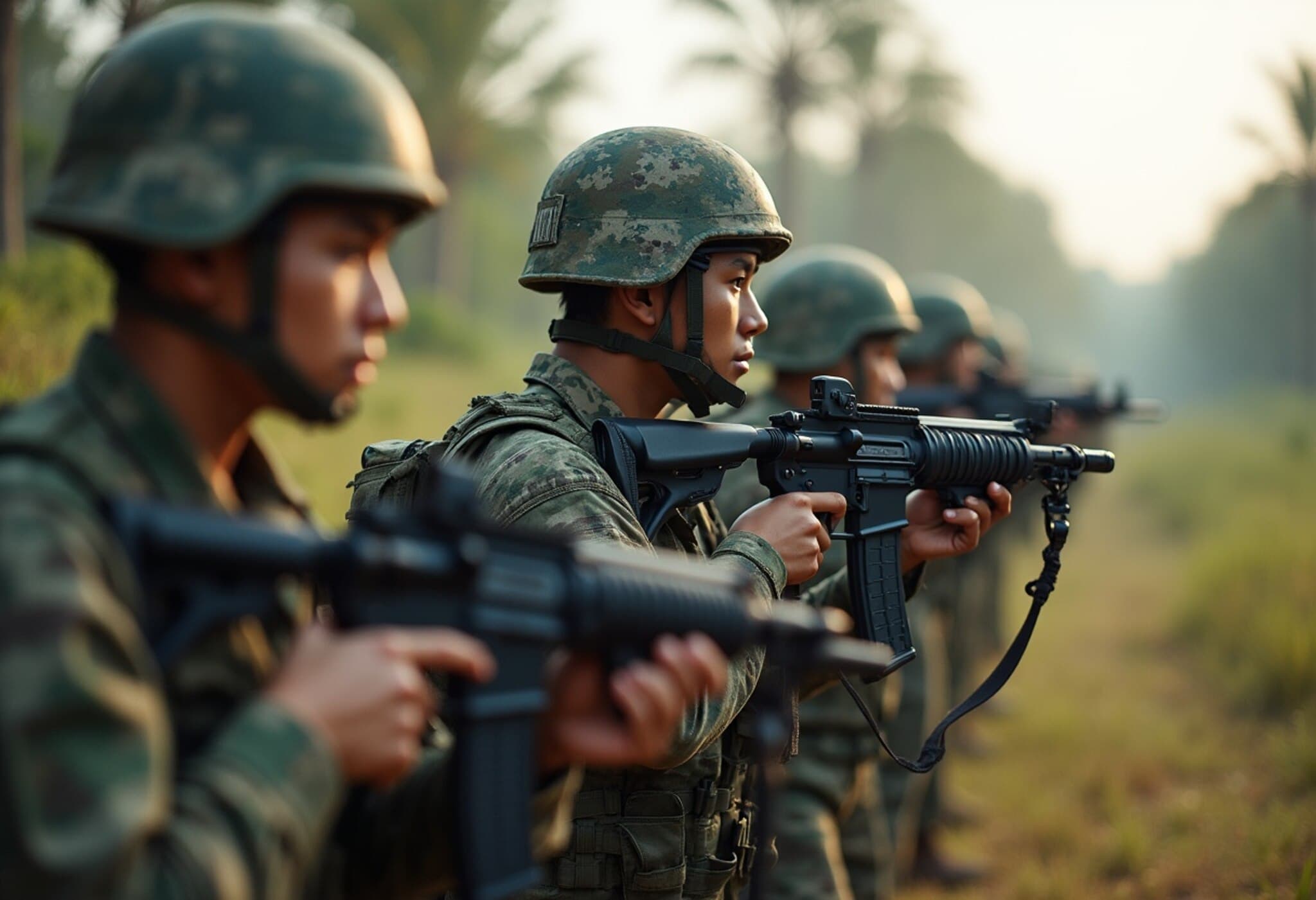Landmine Incident Strains Fragile Ceasefire between Thailand and Cambodia
In a sobering development on August 9, 2025, three Thai soldiers suffered injuries from a landmine explosion near the contested border region between Thailand’s Sisaket province and Cambodia’s Preah Vihear province. This incident comes just days after the two Southeast Asian neighbors agreed to a delicate ceasefire aimed at halting a violent flare-up that took place last month.
Details of the Incident
According to an official statement from the Thai army, one soldier tragically lost a foot, while two others sustained injuries after one of their patrol units inadvertently triggered a landmine in an area that Thailand claims had been recently cleared of such devices. The soldiers are currently receiving medical treatment in a local hospital.
Diplomatic Fallout and Accusations
Thailand’s government swiftly accused Cambodia of violating a bilateral treaty that prohibits the use of landmines and respects border sovereignty. The Thai Foreign Ministry announced plans to file a formal complaint, asserting that Cambodia planted these mines on Thai soil. This allegation risks escalating an already tense diplomatic atmosphere.
On the other hand, Cambodian officials strongly denied these claims. In a statement from the Cambodian Mine Action and Victim Assistance Authority, Phnom Penh affirmed its commitment to the Ottawa Convention against landmines, emphasizing that it has cleared more than one million mines lingering from decades of past conflicts. Cambodian authorities cautioned that Thailand’s accusations could undermine the delicate spirit fostered by the recent ceasefire. They further contended that any mines encountered are remnants of earlier wars and not recently laid traps.
Historical Context of the Border Dispute
The land border shared by Thailand and Cambodia stretches over 817 kilometers (508 miles) and remains partially undemarcated since colonial times. The original border mapping dates back to 1907 under French Indochina’s administration of Cambodia, leaving unresolved areas that have ignited periodic tensions.
Previous Clashes and the Cost of Conflict
This recent landmine incident marks the third occasion within a few weeks where Thai soldiers have been harmed while patrolling the disputed areas. Earlier episodes in mid-July led to the downgrading of diplomatic ties and escalated into what became the worst cross-border fighting experienced by the two countries in over ten years.
- The July 24–28 clashes involved artillery barrages and jet fighter sorties.
- At least 43 people lost their lives, and more than 300,000 civilians were displaced on both sides.
These confrontations exposed the fragile nature of peace in this historically sensitive region.
Steps Toward Stabilization
Currently, the ceasefire, reached in early August, remains intact. It includes an agreement permitting observers from the Association of Southeast Asian Nations (ASEAN) to monitor the disputed border to ensure hostilities do not resume. This arrangement reflects a hopeful—but cautious—path forward toward peaceful conflict resolution.
Expert Insight: The Broader Implications
From a geopolitical perspective, the ongoing border dispute underscores the challenge of colonial-era boundaries in Southeast Asia and their modern repercussions. Landmines, as unexploded relics of past wars, continue to endanger lives and complicate diplomatic efforts.
Moreover, this incident highlights the importance of robust verification mechanisms and trust-building measures between neighboring states to prevent misinterpretations that can spiral into full-blown conflict.
For the United States and other global stakeholders invested in regional stability, supporting ASEAN’s peacekeeping frameworks and humanitarian demining efforts could be pivotal. Additionally, reinforcing international treaties like the Ottawa Convention remains crucial to minimizing harm caused by landmines worldwide.
Looking Ahead: What Needs Close Watching
- How effectively ASEAN observers manage border inspections and report findings.
- Whether diplomatic channels between Bangkok and Phnom Penh can maintain open communication amid mutual accusations.
- Steps taken to accelerate mine-clearing operations and protect civilians and military personnel alike.
Editor’s Note
This tragic episode is a stark reminder that even after ceasefires, unresolved historical disputes and the enduring legacy of landmines continue to threaten peace and human lives. The world must pay closer attention to how seemingly minor allegations can ripple into larger conflicts, especially in regions where borders remain a contentious legacy of colonialism.
For policymakers, journalists, and citizens alike, the question persists: how can lasting trust be cultivated where decades of suspicion and latent hostilities endure? In our interconnected world, fostering dialogue and supporting concrete peace-building efforts remain crucial to preventing further tragedies on these shared frontiers.












